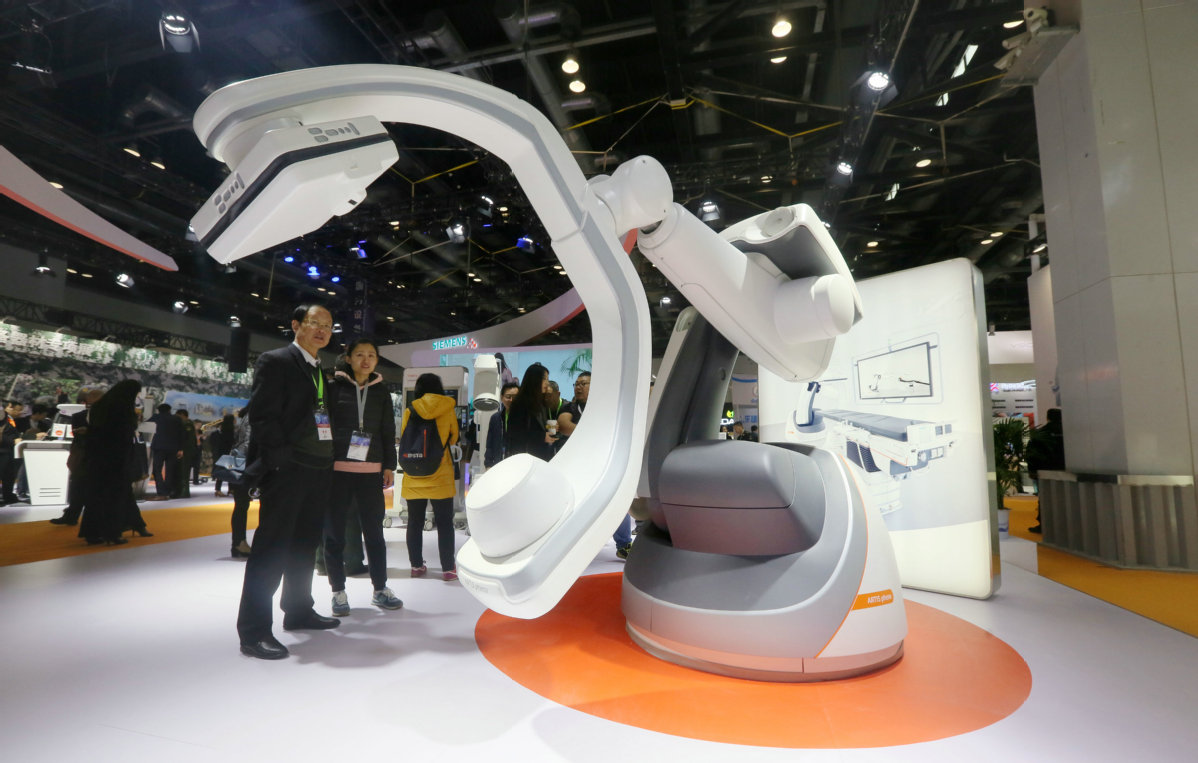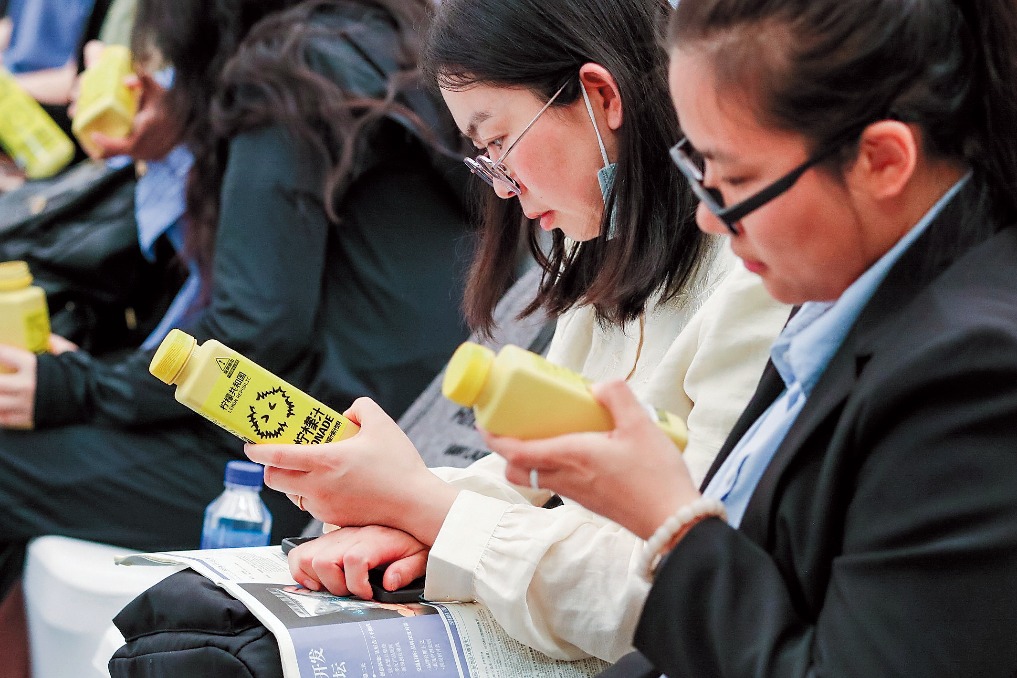Tariff row shows 'US needs reality check'


The United States' economic policy mandarins need a reality check as their additional tariffs on several import items, ostensibly to combat perceived Chinese "economic aggression", are unjustifiable, senior business executives said.
The US should realize that China will continue to influence global economic indicators positively in the long run, they said.
Their comments came after the Office of the US Trade Representative announced late last month 25 percent tariffs on an additional $16 billion worth of Chinese imports starting Thursday.
China responded in kind to the US measure.
Wu Dongxu, general manager of the Foreign Investment Department at Beijing-based Transcontinental Management Consultancy, urged experts to analyze the Trump administration's tariff threats in a more political light.
He stressed while it is economically irrational for the Trump-led US to create trade frictions, it might be politically rational to do so. Negotiations between the two countries would be long and bumpy, he warned.
Wu called the US argument that China's State-owned enterprises or SOEs are government-directed and not market-led "ironic". "When they complain about 'intellectual property theft', they are talking about deals struck between private US companies acting in their own best interest," Wu said.
In terms of the production value chain, the US manufacturing sector not only accounts for the most profitable industries, but also enjoys the highest added value and is actively allocating low-value segments overseas, said Long Guoqiang, vice-president of the Development Research Center of the State Council.
The US already imposed tariffs worth $34 billion on Chinese goods in July and China had to take countermeasures of similar magnitude. The US also threatened to levy 25 percent duty on $200 billion worth of Chinese products on Aug 1.
Gao Yan, chief executive officer of the China unit of German industrial giant Thyssenkrupp AG, said that in terms of economic volume, market scale, capacity and investment, China has become a major player in the international economy and trade, exerting pivotal influence on world trade.
Since the global financial crisis in 2008, China has contributed over 30 percent of world economic growth every year on average. In 2017, China contributed around 34 percent of global growth and accounted for 15 percent of the world economic aggregate, data from the Ministry of Commerce showed.
"If China maintains a healthy growth, it would help to promote the global economy," Gao said. "On the other hand, if China suffers economic challenges, such as overcapacity in some sectors, then it would become a global challenge."
Gao said China today is more than a participant. As the reform and opening-up policy deepens and the Belt and Road Initiative advances, China will become a force in technological innovation, market demand, globalization and formulation of global trade rules.
"China has complete manufacturing industrial chains and is equipped with high-quality technical workers. The existing global industrial layout will also not change in a short time, which will help reduce uncertainty," said Sun Fuquan, a researcher at the Beijing-based Chinese Academy of Science and Technology for Development.
"The escalating trade dispute will only push China to build closer ties with other economies and contribute more to a freer, fairer and more inclusive multilateral trade system via the development of the Belt and Road Initiative," he said.
Sun said the Trump administration's "America First" strategy has not only hurt China's economic interests but damaged business ties with countries like Turkey, Iran, India, Russia and many member countries of the European Union. They have all suffered irrational tariff threats, actual measures and sanctions.
"The Belt and Road Initiative not only helps overcome the slow recovery of the world economy by connecting and integrating policies, facilities, trade, investment and people but allows us to tap into our ability to grow with global customers' needs in mind," said Eddy Chan, senior vice-president and head of the China unit of FedEx Corp, the US-based logistics company.
Siemens AG, a German conglomerate, established an office in Beijing for businesses related to the Belt and Road Initiative in June, further intensifying company-wide efforts to continue teaming up with both Chinese and global partners, thereby reinforcing China's significance in the global trade system.
- US should adhere to global trade norms, says ex-Aussie official
- Tariff muddles US sales outlook for China-built Buick SUV Envision
- Reduction of US farm imports 'will have limited effect on China'
- US cranberry growers face tariff squeeze
- Trump to double tariffs on steel, aluminum from Turkey, White House confirms




































